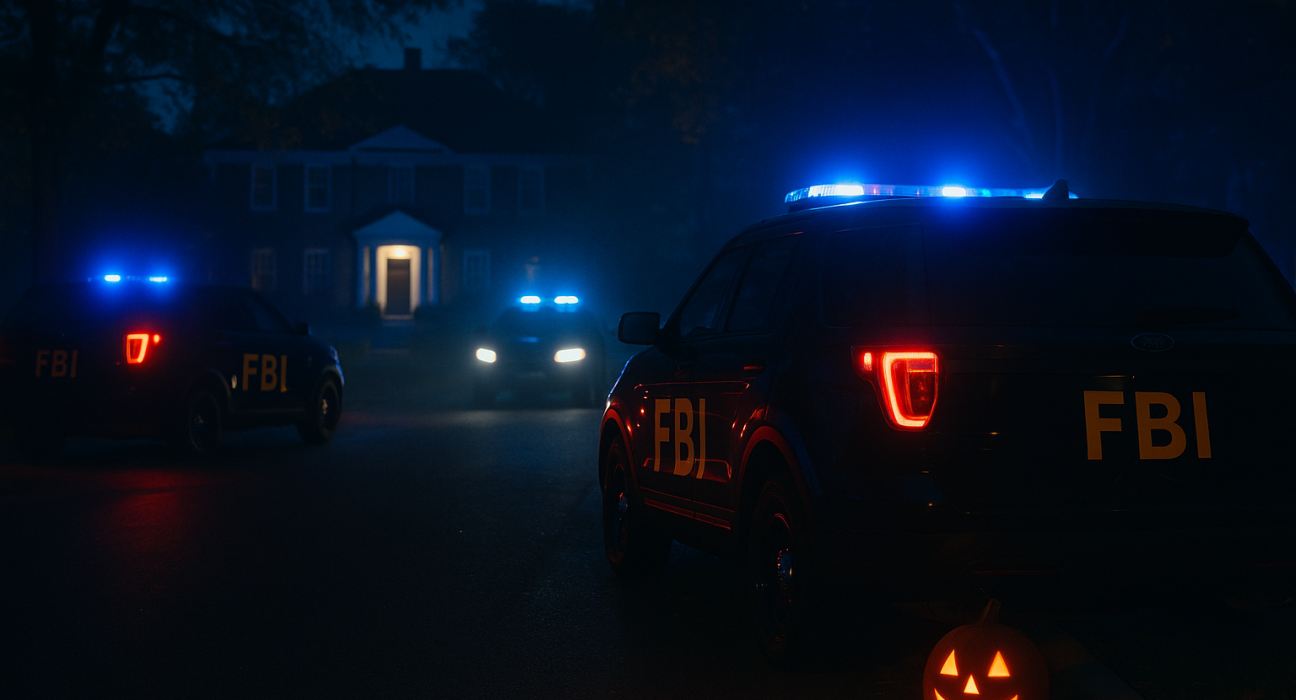In late October 2025, Federal Bureau of Investigation (FBI) Director Kash Patel announced that multiple people had been arrested in Michigan—specifically in the Detroit suburbs of Dearborn and Inkster—and that the FBI had “thwarted a potential terrorist attack” planned for the Halloween weekend. The FBI said the arrests stemmed from online chat-room discussions where a group of young men (ages 16–20) allegedly referenced “pumpkin day” as a code for an attack. In one account, the arrests were later charged: two men in the Detroit area were indicted on terrorism-related counts of receiving and transferring firearms and ammunition for terrorist purposes.
Meanwhile, defence lawyers for one of the arrested individuals, who is being represented by Amir Makled, say the FBI has not provided substantial evidence, and the clients were essentially gamers or chat-room participants with no viable plan to execute an attack. Makled described the narrative as “hysteria” and “fearmongering.” Given that the FBI has not publicly released detailed evidence of planning, means, or target, questions remain about how close the group was to carrying out the alleged act. Some local-news reporting described seized weapons caches and meetings in storage units.
The region’s law-enforcement agencies emphasised there was currently no threat to public safety.
Main Points
- The FBI announced that multiple individuals in Michigan were arrested for plotting a violent attack over the Halloween weekend.
- The plot allegedly involved a young group of men communicating online, referencing “pumpkin day,” and inspired by extremist ideology.
- Two men were formally charged with terrorism-related offenses in Detroit area; others remain under investigation.
- Defence lawyers argue the publicly released narrative lacks concrete evidence of a bona-fide plot and say their clients were not capable of carrying it out.
- The government emphasised the threat has been neutralised, but many details (target, capability, timing) are still undisclosed.
Pros & Cons
Pros
- The FBI’s rapid action may have prevented a potentially dangerous attack, and the announcement could serve as a deterrent to future plotting.
- The collaboration of federal and state law-enforcement in Dearborn and Inkster demonstrates coordinated security readiness.
- Alerting the public and declaring “no current threat” may help reassure residents and prompt vigilance in local communities.
Cons
- The lack of detailed publicly released evidence leaves room for critique, including concerns of over-classification of ordinary online chat as “terror plotting,” which may raise civil-liberties questions.
- If the plot was not fully formed or lacked means, labelling it as terrorist risk may generate public alarm disproportionate to the actual threat.
- The narrative may also fuel community distrust—especially among minority populations in Dearborn and Inkster—if they believe they are being swept into broad enforcement actions without clear justification.
Implications & What It Means for the Future
- Legal standard & transparency: Ongoing investigation will test how courts define “plotting” vs mere discussion and what evidentiary threshold applies for terrorism charges. The perception of secrecy may prompt calls for greater transparency in such cases.
- Online radicalisation and youth: The case highlights how young online communities may be monitored for extremist content; law-enforcement may increase focus on chat rooms and coded language. This raises questions around privacy, free speech and monitoring thresholds.
- Community relations: Dearborn is a diverse, largely Arab-American and immigrant-heavy suburb. Incidents like this may strain trust between law-enforcement and the community if not handled with cultural-sensitivity and open communication.
- Resource allocation: The use of JTTF (Joint Terrorism Task Force) resources on plots that are not fully formed may raise questions about prioritisation—especially if many potential threats involve online chats rather than concrete attack capabilities.
- Public perception and policy: If citizens perceive that “terror plots” are invoked prematurely or without clear basis, this could influence public trust in security institutions and influence debate about civil liberties, profiling, and preventive detention.
References
- AP News: Michigan lawyer says a Halloween terror plot that FBI Director Kash Patel described never existed — https://apnews.com/article/d4758edbde0b18c19ca7b38f9e836904 AP News
- AP News: Two men charged in Detroit-area terrorism plot after Halloween arrests — https://apnews.com/article/f47736ddf21df6614f75fb932d6aeac4 AP News
- Reuters: FBI says it has made multiple arrests, disrupted attack plot in Michigan — https://www.reuters.com/world/fbi-says-it-has-made-multiple-arrests-disrupted-attack-plot-michigan-2025-10-31/ Reuters
- CBS News Detroit: FBI thwarts “potential terrorist attack” in Michigan, 5 people arrested — https://www.cbsnews.com/news/fbi-potential-terrorist-attack-thwarted-michigan-multiple-people-arrested/ CBS News
- FOX 2 Detroit: Thwarted terrorist attack: Michigan attorneys say there was no Halloween weekend terror plot despite FBI claims — https://www.fox2detroit.com/news/thwarted-terrorist-attack-michigan-attorneys-say-was-no-halloween-weekend-terror-plot-despite-fbi-claims/ FOX 2 Detroit
